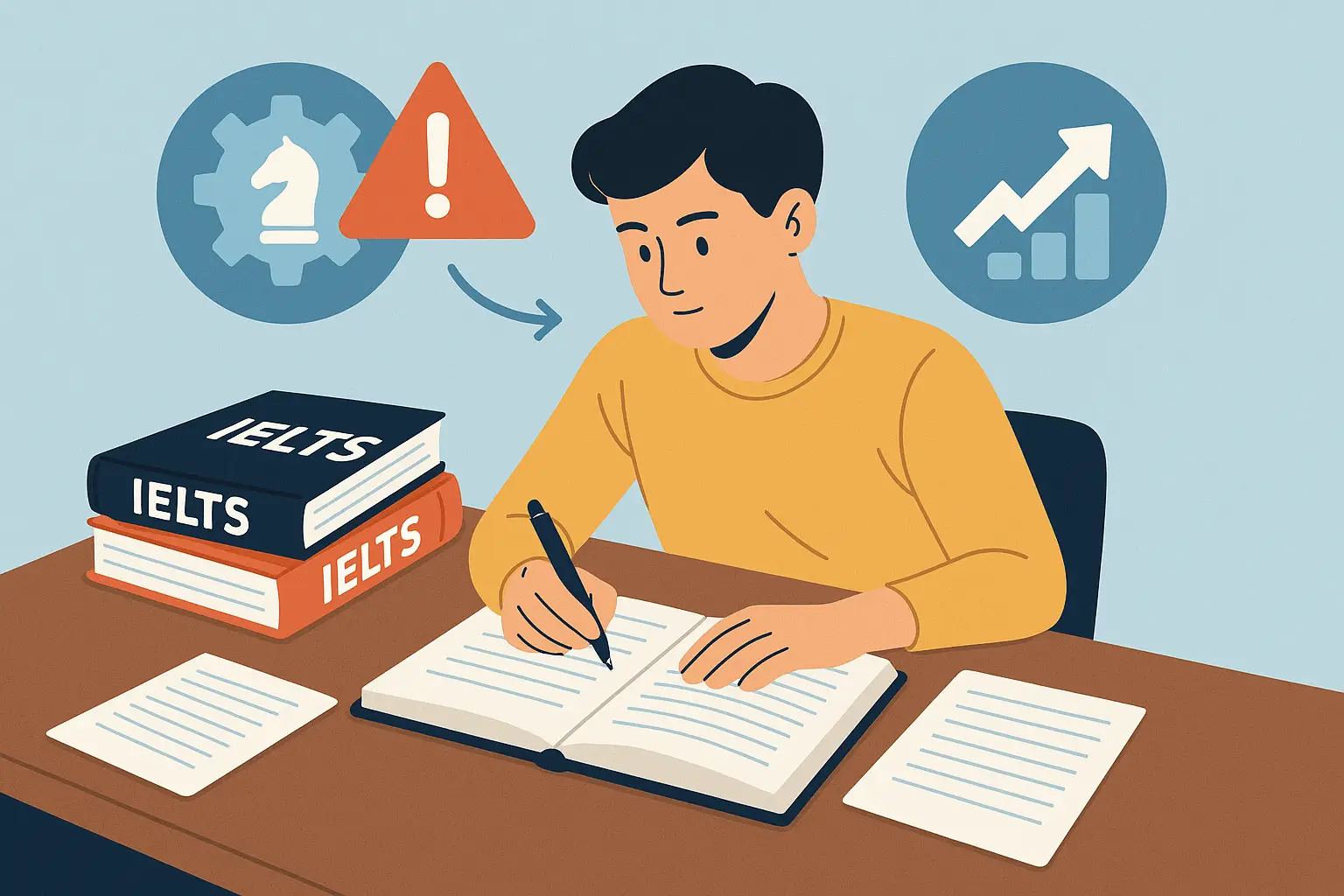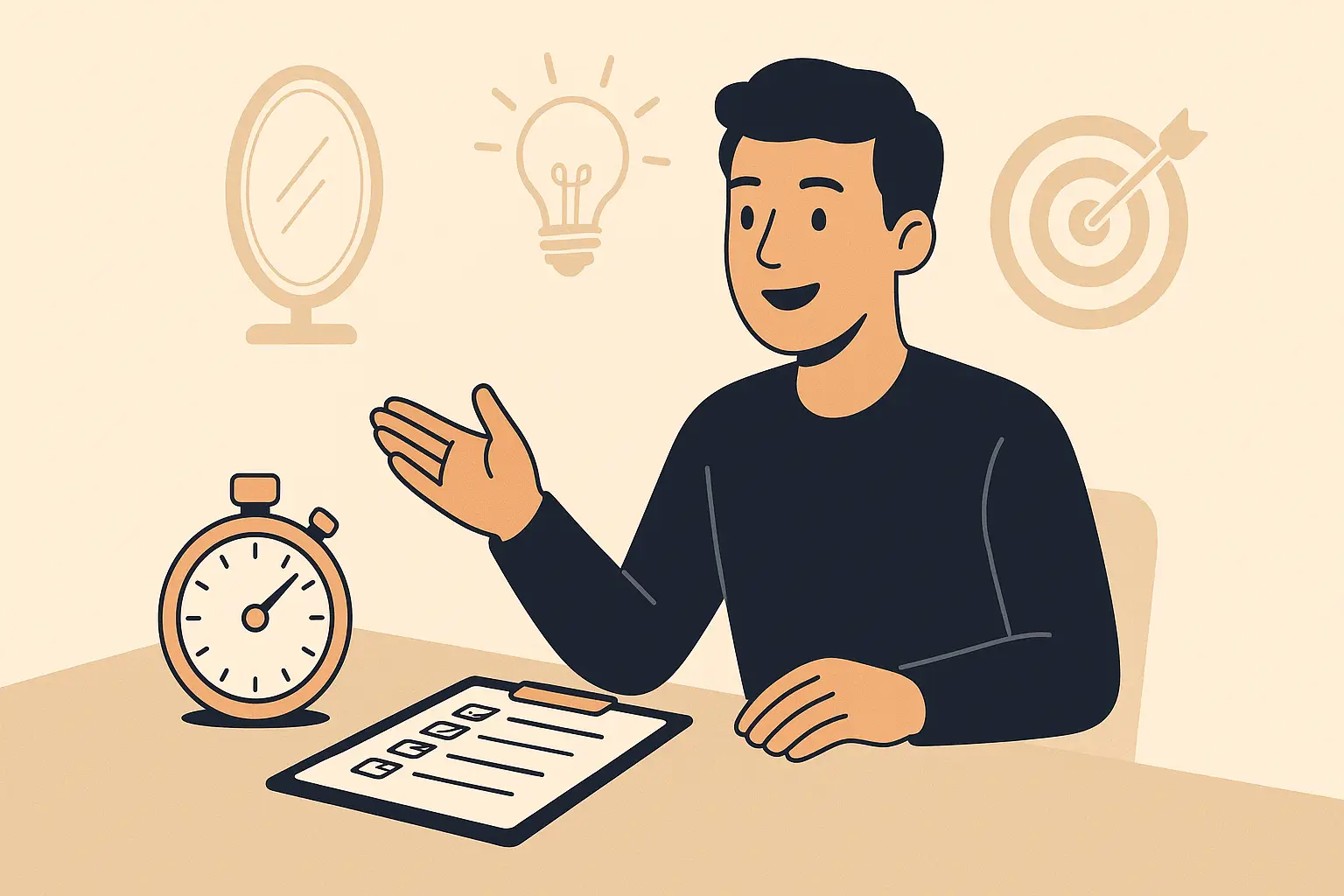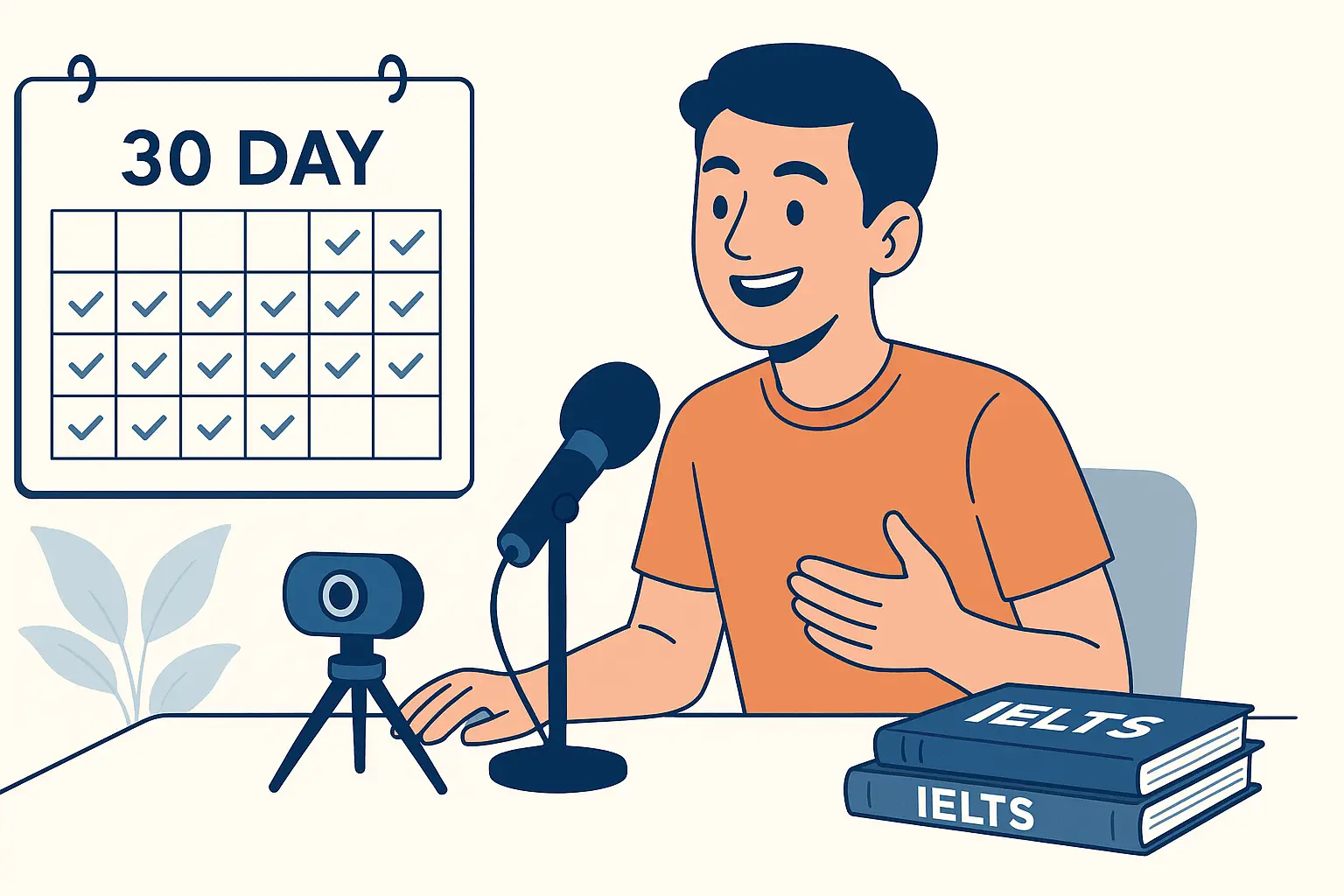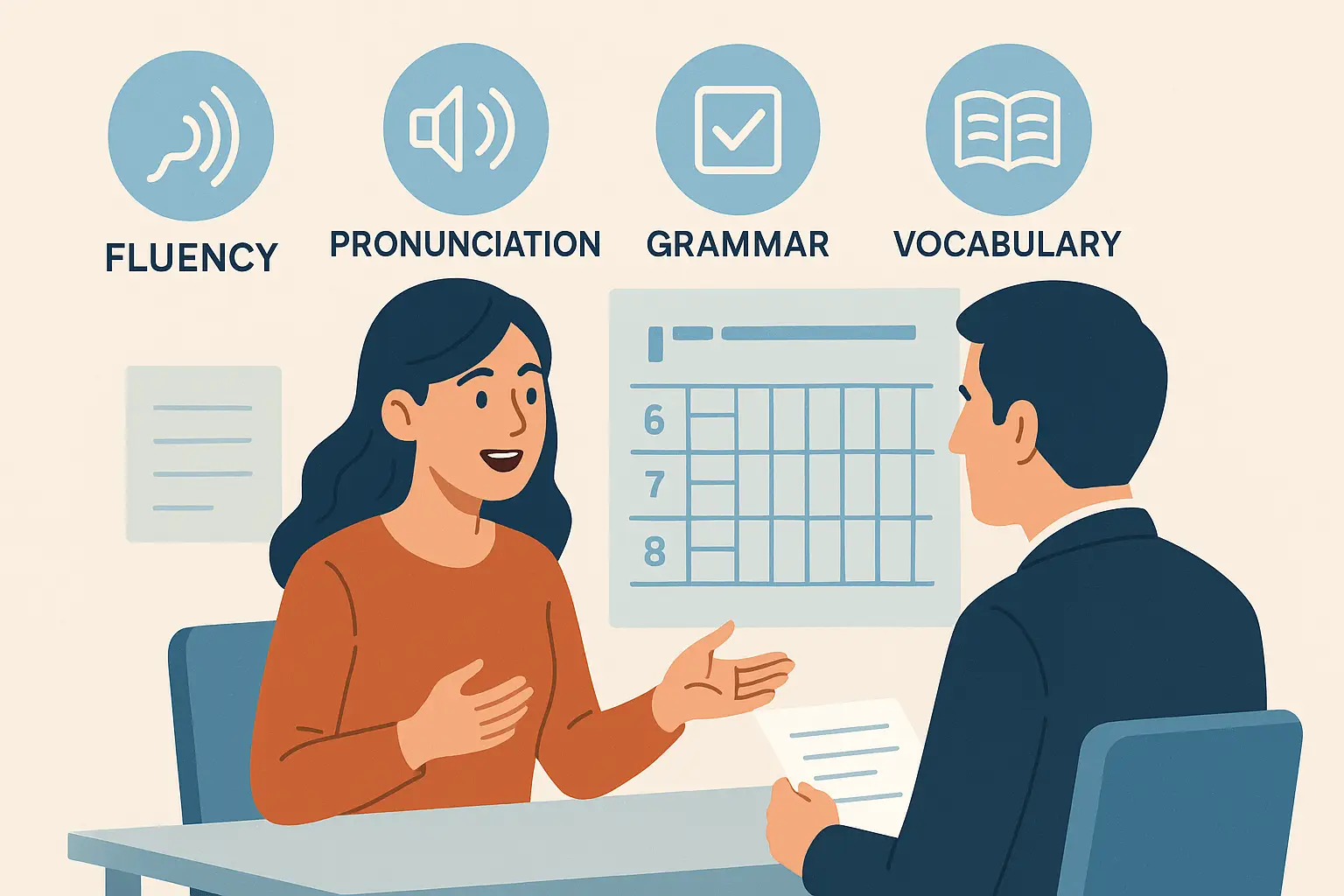- Understanding Why Strategy Matters in IELTS Preparation
- IELTS Practice Strategies and Common Mistakes in Listening
- Strategies and Pitfalls in IELTS Reading
- Mastering IELTS Writing: Strategies and Mistakes
- Speaking Practice, Strategies & Common Mistakes
- Why Self-Assessment Matters More Than You Think
- FAQ: IELTS Practice, Strategy & Mistake Fixes
- Final Thoughts: Turn Practice Into Progress
As an international IELTS teacher who’s worked with students across five continents, I know the struggles learners face when trying to reach Band 7 or above. IELTS Practice Strategies and Common Mistakes are often what make or break a test-taker’s performance. And the truth? Most students don’t fail the IELTS because they lack knowledge — they fail because they don’t know how to prepare effectively or avoid the mistakes that silently chip away at their scores.
In this pillar guide, I’ll walk you through the proven strategies my students have used to achieve success. I’ll also highlight the most common pitfalls that derail even the most confident candidates — and how to fix them.
Understanding Why Strategy Matters in IELTS Preparation
If you’ve ever practiced IELTS tasks for hours only to see little improvement, you’re not alone. One of my students in Brazil took 10 practice tests and still hovered at Band 6. When we reviewed her methods, the issue was clear: she was “practising blindly,” without feedback, without timing, and without applying the IELTS practice strategies and common mistakes she could’ve learned earlier.
Practice must be strategic. That means:
- Simulating test conditions
- Using the official answer sheet
- Recording your Speaking sessions
- Reviewing writing with scoring criteria
- Identifying and targeting weak points
By embedding habits like these early, your practice turns into performance improvement.
IELTS Practice Strategies and Common Mistakes in Listening
IELTS Listening might feel easy when you’re relaxed at home. But under pressure, it’s a different story.
Smart strategies that work:
- Skim questions before the audio begins
- Underline keywords and synonyms
- Predict possible answers
- Write answers in ALL CAPS to avoid handwriting confusion
One of my students in Vietnam improved her Listening score from 6.5 to 8 by using a simple method: shadowing BBC audio daily and taking this 30-day Speaking and Listening routine.
Common mistakes to avoid:
- Getting stuck on one question and missing the next
- Spelling errors (especially in numbers and names)
- Not transferring answers correctly
- Ignoring instruction like “no more than two words”
Strategies and Pitfalls in IELTS Reading
Reading tests vocabulary, scanning skills, and stress control. The biggest mistake? Reading every word.
What top scorers do instead:
- Use skimming and scanning for answers
- Read the questions first
- Highlight keywords and question types
- Learn paraphrasing techniques (which I explain thoroughly in the Matching Features guide)
Mistakes that lower your score:
- Misinterpreting True/False/Not Given
- Changing words when completing sentences
- Guessing blindly without eliminating options
Students often tell me, “I thought Reading was my strength,” but panic sets in when they can’t finish on time. That’s why we focus on timed reading marathons and breaking down common traps by question type.
Mastering IELTS Writing: Strategies and Mistakes
Writing is arguably the most challenging for most learners. And yes, the IELTS practice strategies and common mistakes here are make-or-break.
Key strategies that elevate Band scores:
- Plan your essay before writing
- Learn how to structure paragraphs clearly
- Use a mix of sentence types
- Understand what examiners want — which I detail in this guide on IELTS Band Descriptors
Common pitfalls to fix:
- Not analysing the question fully
- Repeating the same vocabulary
- Lack of cohesion (poor linking)
- Task Response issues (going off-topic)
I once had a student from Turkey who wrote beautiful paragraphs. But she missed the question focus entirely. We worked through a mock self-assessment process, and within two weeks, she scored Band 7.5.
Speaking Practice, Strategies & Common Mistakes
Let’s be honest: most students prepare for Speaking by reading questions and answering in their heads. But speaking is performance, not just preparation.
Practice strategies that build fluency and confidence:
- Record answers and self-review daily
- Mimic native speakers for pronunciation
- Practice full tests, not just Part 2 or 3
- Use topic-based vocabulary (see this sample answers page)
Frequent mistakes I see:
- Memorised answers (which examiners detect instantly)
- Overuse of filler words (like “you know”, “like”)
- Answering too briefly without examples
One of the most helpful resources I share is my complete IELTS Speaking guide — it’s helped thousands of students build a custom improvement routine.
Why Self-Assessment Matters More Than You Think
Whether you’re aiming for Band 7 or 9, one habit transforms your progress: regular, honest self-assessment.
Most learners avoid it. Why? Because it’s hard to hear your mistakes. But just like a personal trainer in fitness, this feedback loop is essential.
I recommend setting aside 15 minutes every evening to:
- Review your writing or speaking
- Compare against Band Descriptors
- Note recurring issues (grammar, cohesion, fluency)
- Set one mini-goal for the next session
Pair this with guidance from official sources like IELTS.org and British Council, and you’re on a path to measurable progress.
FAQ: IELTS Practice, Strategy & Mistake Fixes
Q: Can I prepare for IELTS without a teacher?
Yes, but you need structure. Use practice tests, band descriptors, and routines like our 30-day speaking plan.
Q: How often should I practice each skill?
Aim for daily rotation: Listening + Reading on Day 1, Writing + Speaking on Day 2, then repeat. Include review time.
Q: What’s the biggest mistake students make in IELTS prep?
Focusing only on “doing” instead of “reviewing.” Mindless repetition doesn’t improve scores — feedback and reflection do.
Q: I keep getting 6.5 in Writing. What should I change?
You likely need to improve coherence or task response. Use this self-assessment checklist or get expert feedback.
Final Thoughts: Turn Practice Into Progress
The IELTS isn’t just a test of English — it’s a test of how well you prepare. When you follow the right IELTS practice strategies and avoid common mistakes, you don’t just improve your score. You build confidence, fluency, and real-world communication skills.
I’ve seen learners go from Band 6 to Band 8 in under 60 days with consistent practice, honest self-review, and smart strategy. You can do the same. Start today by applying one change from this guide.
Your IELTS success isn’t luck — it’s strategy.





One Response